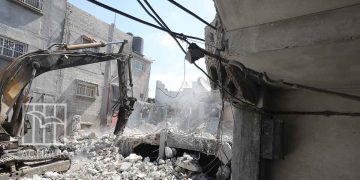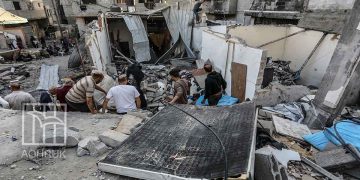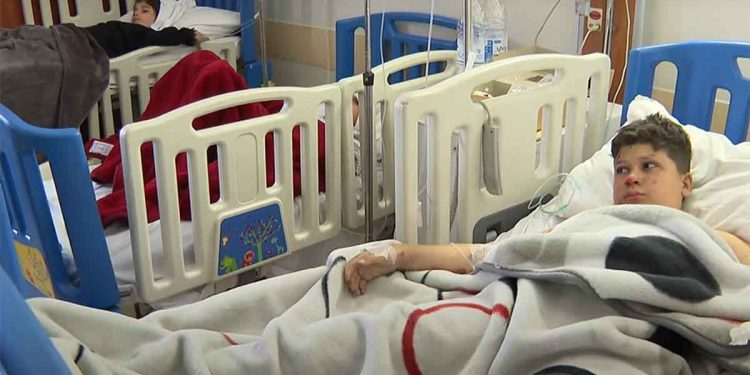Gaza’s health sector has turned into a scene of unprecedented human suffering as the Israeli occupation continues to block the entry of essential medicines and medical supplies.
In this context, the Director of Al-Shifa Medical Complex, Dr Mohammad Abu Salmiya, described the situation as “catastrophic by every measure,” stressing that hospitals are unable to save lives and are operating far beyond their capacity after the destruction of most medical facilities and the disruption of critical supplies.
He stated in media remarks that the number of hospital beds across the Gaza Strip has dropped from 3,500 to about 1,500, while occupancy levels have exceeded 200 percent. Medical staff are now forced to treat patients on floors and in hospital corridors.
Dr Abu Salmiya noted that dozens of wounded people require urgent surgery, alongside hundreds of postponed operations — some delayed for more than two years — due to the severe shortage of surgical equipment and operating theatres.
He added that Gaza is suffering from an acute shortage of medicines, intensive care units, operating rooms, dialysis machines, and chemotherapy treatment for cancer patients. What little medical aid enters represents less than 10 percent of actual needs, making the provision of even basic medical care “almost impossible.”
Current data indicate that the deterioration of Gaza’s health system is not a temporary humanitarian crisis but the direct result of systematic policies pursued by the Israeli occupation, deliberately targeting civilians through the destruction of infrastructure and the prevention of vital supplies.
Under the 1948 Convention on the Prevention and Punishment of the Crime of Genocide, acts that deliberately destroy a population by depriving it of food, medicine, or medical treatment constitute forms of genocide — even if direct killing is not the primary means.
Similarly, the Fourth Geneva Convention (1949) on the protection of civilians in wartime explicitly prohibits attacks on medical facilities or obstruction of humanitarian relief. Such actions amount to war crimes and crimes against humanity when carried out on a widespread and systematic basis.
The genocidal war waged by the Israeli occupation against the Gaza Strip for nearly two years since 7 October 2023 has led to the near-total destruction of the health infrastructure in the northern part of the Strip, including major medical complexes that once formed the backbone of Gaza’s health system, such as Al-Shifa Medical Complex, Kamal Adwan Hospital, and Al-Quds Hospital. As a result, dozens of primary health centres have ceased to function, and the remaining hospitals operate at no more than 20 percent of their original capacity.
This systematic destruction, combined with the ongoing blockade and the ban on fuel and medicine entry, has created conditions that clearly reflect the elements of genocide. Patients and the wounded are dying not only from direct attacks but also from the absence of medical treatment and care.
International humanitarian law affirms that the right to life and to health care is inalienable, even in times of armed conflict. The occupying power bears direct responsibility for ensuring the basic needs of the civilian population under its control, including access to medical services.
However, the situation on the ground reveals a grave violation of these obligations. The destruction of hospitals and obstruction of aid have led to a significant rise in deaths among patients and the wounded, the spread of disease, and increasing malnutrition — a pattern that constitutes collective punishment, which is strictly prohibited under international law.



























